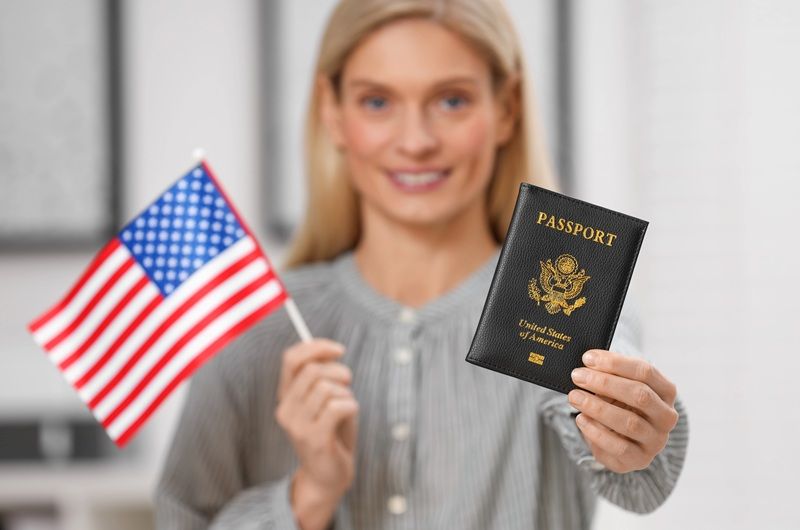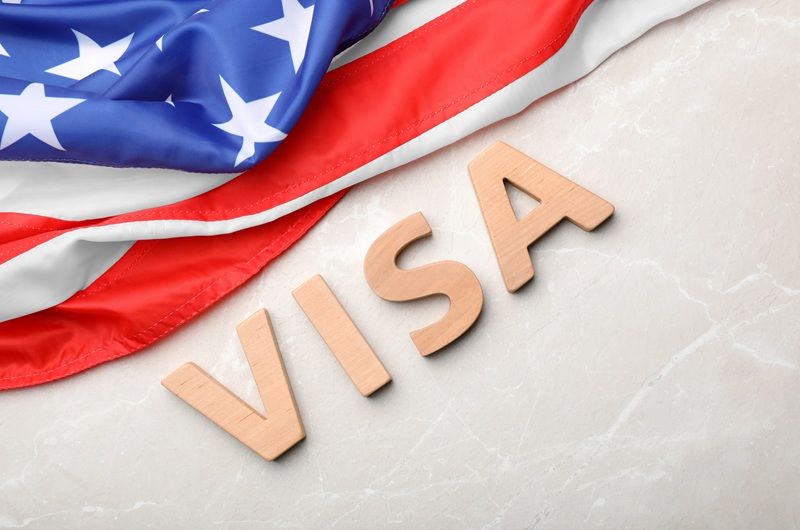VAWA Immigration Lawyer Helps When Relationship Ends
Leaving an abusive relationship can be deeply personal and frightening, especially when your immigration status depends on your U.S. citizen spouse. However, you can find a path forward and rebuild your life. The Violence Against Women Act (VAWA) offers legal protections that allow you to seek safety without the fear of deportation.
This article explores how proper legal representation can help you secure your lawful permanent residency (LPR) status and protect your rights. Discover what VAWA is, its benefits, and how a vawa immigration lawyer can ensure your safety.
VAWA As A Pathway For Domestic Violence Victims
The Violence Against Women Act was created to protect victims of domestic abuse and provide resources for survivors. While it initially focused on women, VAWA extends its protections to eligible victims of domestic violence, regardless of gender.
This program provides special protections to domestic violence victims by their U.S. citizen or lawful permanent resident spouses. Through VAWA, you can apply for immigration status without your abusive partner’s involvement. It allows you to remain in the United States even after ending the relationship.
Filing for this protection involves complex procedures. Unlike other humanitarian reliefs, VAWA cases require a deeper understanding of domestic violence and immigration laws. A skilled and experienced attorney can ensure your case is handled carefully and presented accordingly.
One of the most important roles of a lawyer in these situations is gathering the right evidence to support your case. You must prove the abuse, your relationship, and good moral character while adhering to strict deadlines. No matter your circumstances, a skilled attorney can help you understand your eligibility.

VAWA Self-Petition In Varied Circumstances
VAWA empowers abused spouses to take control of their future by filing a self-petition for legal status. The law acknowledges that abuse can persist even after a relationship ends. For this reason, VAWA extends protections to those who are separated or divorced. The path to safety remains open whether the marriage is still intact or legally ended.
Still Married But Living Apart
You don’t need to be legally separated to seek VAWA protection. If you’re no longer living with your abusive spouse but are still tied to the marriage, VAWA still applies. The law recognizes that moving out is often the first step to safety, and you can start the petition process without waiting for a legal separation.
You can present evidence of past abuse, regardless of current living arrangements. Things like police reports, medical records, or statements from witnesses can strongly show the abuse you suffered during the marriage. Gather as much documentation as possible to support your claim.
Although living separately from your spouse won’t disqualify you, you must still meet other requirements. You have to demonstrate good moral character and prove your spouse is a U.S. citizen or lawful permanent resident. Additionally, you need to establish you entered the marriage in good faith.
Legally Terminated Marriage
Even if your marriage has legally ended, you still have options. VAWA allows you to submit a self-petition within two years of your divorce. However, the timing is critical. Missing this window makes it much more difficult to get a petition approved. Acting quickly ensures you can still file and protect your future.
If battery or severe cruelty from the spouse caused the divorce, your case becomes stronger. Showing that abuse pushed the marriage to end significantly bolsters your petition. A divorce linked to domestic violence demonstrates that you were in an abusive situation and needed to separate for your safety.
As with physical separation, providing evidence of abuse remains vital for divorced spouses. You must show what occurred during your marriage, even though the relationship has ended. Documents such as affidavits, court records, or letters from witnesses can significantly impact your case.
While self-petitioning requires considerable effort and can be emotionally challenging, the benefits of a successful application make the effort worthwhile. A skilled VAWA immigration attorney can help you attain these substantial benefits.
Significant Benefits Of A Successful Self-Petition
A successful VAWA self-petition can completely transform your life. It opens doors to various benefits, from securing your immigration status to gaining financial independence. With a lawyer’s guidance, you can maximize such opportunities and receive support every step of the way.
Pathway To Green Card
An approved application allows you to apply for a Green Card. You can adjust your status to become a lawful permanent resident if you’re currently in the U.S. However, if you’re abroad, consular processing will enable you to apply for legal status at a U.S. consulate. An experienced immigration lawyer can streamline both processes.
Work Authorization & Public Benefits
After filing your VAWA petition, you may qualify for work authorization. This allows you to get a job legally in the U.S. and achieve financial independence from an abusive spouse. You may also be eligible for federal and state public benefits like housing assistance or healthcare. A skilled attorney can help expedite these applications and avoid delays.

Long-Term Immigration Solutions
The benefits of a successful VAWA petition extend beyond temporary relief. Receiving your Green Card sets you on the path to U.S. citizenship via naturalization. A VAWA lawyer can continue supporting you even after approval, helping you fully leverage these long-term immigration opportunities.
Though abusive relationships may leave lasting physical and emotional scars, these benefits offer hope. They underscore the importance of having effective legal representation in rebuilding your life in the United States.
A VAWA Immigration Lawyer Advocates For You
When facing the aftermath of an abusive relationship, the legal process can feel intimidating. A VAWA immigration attorney stands with you, helping you navigate the complicated path to safety and independence. Seasoned lawyers can make this journey a smoother experience.
Comprehensive Evidence Gathering
A skilled lawyer gathers evidence needed to build your case, including documentation of both the abuse and your relationship with the abuser. They know which proofs work effectively and can help you compile a compelling and accurate petition. Further, they can assist in obtaining sensitive documents you may find difficult to access or manage alone.
Prove Non-Physical Abuse
Abuse comes in many forms, and VAWA recognizes that not all abuse is physical. Emotional, psychological, and financial abuse can be just as damaging, though it’s often harder to prove. A seasoned attorney ensures your case of non-physical abuse is presented clearly and persuasively, including controlling behavior, isolation, or threats of deportation.
Interview Preparation
When applying for legal status, U.S. Citizenship and Immigration Services (USCIS) typically conducts interviews. As a VAWA self-petitioner, you must strongly present all aspects of your case. Your lawyer prepares you by explaining what to expect, helping you craft credible responses, and ensuring you feel comfortable discussing your experience.
Overcome Language Barriers
Language barriers often make the legal process more intimidating. An experienced attorney bridges this gap by translating important documents and ensuring you fully understand the immigration procedures. Clear communication becomes vital in any legal case, and your lawyer ensures language doesn’t hinder your petition.
On-Going Support & Guidance
An immigration lawyer’s support continues after filing the petition. They track your case’s progress and respond to any Requests for Evidence (RFEs) or questions from USCIS. This ongoing guidance ensures your petition stays on track and avoids delays or denials due to missed deadlines or incomplete information.
VAWA immigration lawyers do more than just provide legal representation. They actively advocate for your rights and well-being. From collecting evidence to offering ongoing guidance, their support ensures you get the protection you deserve and helps you move forward with your life.
Lincoln-Goldfinch Law – Abogados de Inmigración Helps You Start Anew
At Lincoln-Goldfinch Law – Abogados de Inmigración, we guide immigrants who have survived abusive relationships, providing the legal support needed to start fresh. As an experienced legal resource, we understand the unique challenges of seeking protection under VAWA. We help you navigate the legal system confidently, protecting your interests at each stage.
Our skilled attorneys approach every case with compassion and sensitivity. We recognize the emotional toll that abuse takes and work to ease the legal burden. Through comprehensive and tailored support, we handle your petition with care, respect, and confidentiality.
We advocate for survivors to rebuild their lives. Our dedicated team aims to make you feel safe and supported throughout the VAWA process. At Lincoln-Goldfinch Law – Abogados de Inmigración, you receive legal advice, genuine care, and a commitment to your well-being every step of the way.
Summary
The Violence Against Women Act (VAWA) offers a legal route for spouses of abusive U.S. citizens or permanent residents to secure immigration status. It enables domestic violence victims to file for self-petition without their abusive spouse’s involvement. VAWA protections remain available whether the marriage has been legally terminated, provided you meet other criteria.
A successful VAWA petition offers substantial benefits, such as a Green Card, work authorization, and access to public benefits. Lincoln-Goldfinch Law – Abogados de Inmigración helps you achieve these long-term advantages, bringing hope for your future. We support survivors of abusive relationships in rebuilding their lives and achieving stability in the United States.
Contact A U.S. Immigration Attorney Today!
Categories
How To Find Us
What Our Clients Say
“This Lawfirm is great, very professional and helpful. I love that they are always in communication and always available for when you have questions . 100% recommended by me and my family. Thank you Lincoln-Goldfinch Law – Abogados de Inmigración”





